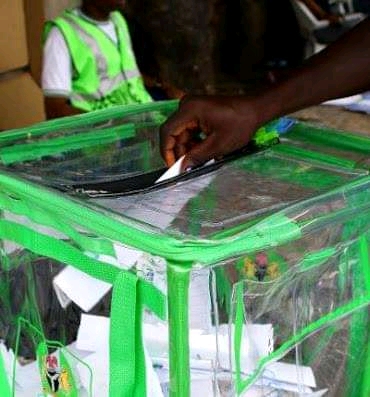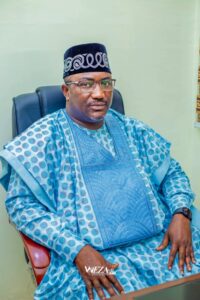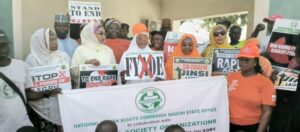
By Dr. Aliyu U. Tilde
In my last article, Zulum is Coming, I mentioned a 12m votes bank whose ownership a founding member of the APC, Mr. Osita Okechukwu, and his APC ascribed to President Muhammadu Buhari. Even the wise, articulate and persuasive Reno Omokri, in his recent article, “2023: Political Realities That Annoy and Heal,” asserted,
“In every election since 2003, Buhari has always had a captive audience of 12 million Northerners, plus or minus one million. Buhari’s political foot soldiers in the core North are united behind him. What the opposition must do is to find a way to divide them.”
The picture, therefore, is given of a gigantic political monument, almost a prison, filled with “captives”, or a bank full of voters belonging to President Buhari who commands them on what to do on election day. In fact, as we await 2023, they are right now waiting to cast their vote for his candidate, whoever that may be.
This article is not denying the existence of 12 million votes—and much more—in the core north but it disclaims their purported ownership and highlights the two factors that amassed them. Knowing the factors is important for 2023 permutations in both APC and PDP. Y the end of the article, it will be clear to the reader that Buhari has lost the key to the bank. Thus, no presidential aspirant should be deluded into thinking that he will inherit from Buhari. The candidate must build his own bank and guard it.
Danfodio
The foundation for a unified Hausaland was laid by Danfodio when he conquered the Hausa States and other areas that came into the orbit of the Sokoto Caliphate. Before him, historians are unanimous on the inability of the Hausa States to form a common front against external aggressors. The influence of Borno has been there for centuries. Mohammad Askia came from as far as Songhai to attack Hausaland in 1503, slaughter its kings, one after the other, and establish his suzerainty over it without any joint resistance. The Gobirawa, when expelled by Tuaregs from today’s Niger Republic sought and got refuge in the Kingdom of Zamfara, which they turned against and upon whose ruins they formed the powerful Gobir Kingdom until it was liquidated by the Jihad of Danfodio in 1803.
The Caliphate established by Danfodio knitted Hausaland, for the first time, and extended its influence down to Nupeland and Kwara in the South and Northern Cameroon in the East, of course with the exception of some small recalcitrant states like Kebbi. The Caliphate cut deep into the core of rival Borno Caliphate, pushing it back to areas immediate to Lake Chad basin. The Caliphate’s hegemony over this vast land lasted for exactly 100 years until the advent of the British rule, which, instead of destroying it as Danfodio did to Gobir, deployed it as a tool of indirect rule and added to it more areas of influence in the Middle Belt, the recalcitrant entities like Kebbi and even the collateral Borno Caliphate to some extent.
This is the foundation of the political unification of the North. Danfodio, largely through his astute administrator-warrior-scholar son, Bello, designed the format for the future political hard disk—and developed the operating system as well—of the vast land under his caliphate. The segments of that disk—the emirates and their districts subdivisions—were kept intact by the colonialists and they formed the basis of states and local governments boundaries entrenched in our 1979 and 1999 constitutions. No other hegemony could be bigger in Nigeria.
In fact, the size of that system has been at the center of bitterness in the south, among some communities in the Middle Belt and, until recently, Borno. It has also been a source of constant headache for progressive elements in the North until the last 30 years. It gave the foundation for the Northern Peoples Congress (NPC) that led the country after independence until 1966 and of the National Party of Nigeria in 1979. It is behind the unequal size of the three regions in the First Republic which was, according to constitutional lawyers like Professor Nwabueze, the most fundamental reason for its failure.
This hegemony of the north would continue to dominate Nigerian politics. Awo, Zik and opposition parties reasoned during the First Republic that unless it is broken the south will never make it to the centre, hence the 1966 coup and the disbandment of the Northern Region and creation of states in 1967. The 1966 coup turned out to be the biggest unifying post-independence factor among the Hausa-Fulani emirates. The gruesome murders of northern political and military leaders graphically expressed to northerners how they are viewed and hated by “the others”. It created a fear of an enemy ready to exterminate them. It has become a battle of survival and the natural strategy is to unite.
Despite the dismemberment, to the surprise of Awo and the rest, the Hausa-Fulani hegemony resurfaced in 1979 and grew stronger using incumbency so much so that the ruling NPN had to be toppled when it made serious incursions into the Southwest and enclaves like Plateau. President Babangida did a lot for national unity to reformat things by registering only SDP and NRC, forcing Nigerians to blend so much that Abiola, a Yoruba from the Southwest, could emerge as the undeclared winner of the 1993 elections. This would continue through the 1999 elections which saw Obasanjo emerge as President with the support of the Hausa-Fulani north.
Obasanjo
Then entered the second most important founder of the 12 million votes bank. OBJ.
Unfortunately, Obasanjo set out right from the beginning of his administration in 1999 to suppress the Muslim North at the instigation of this prison experience and his close associates among northern minorities. For the first time, the core north started crying marginalization. It was even fashionable for northerners from minority areas, including Kwara and Kogi, to disclaim the north. If his suppression were limited to political appointments it would not have mattered much. However, Obasanjo specifically targeted northern infrastructure and economy, and was overheard promising to reduce northerners to beggars in the streets. Equally important was his design to divide the north by allowing northerners to be killed in Muslim minority areas of Plateau and Southern Kaduna as they were also killed by the OPC in the southwest.
In all, a collective feeling of victimhood emerged in the Muslim-north, including Borno which has for most of the time before now chose to assert a political identity independent of the Hausa-Fulani states, through Borno Youth Movement, Great Nigeria Peoples Party and All Nigeria Peoples Party. Obasanjo allowed the incubation of Boko Haram in the Northeast and by 2010 its threat has completely brought Borno into complete political alignment with the Hausa-Fulani north.
It was this atmosphere that created Buhari the politician in 2002. Two or three months to his joining politics, Buhari the ex-general told BBC Hausa Service that he is never interested in politics and that he has given up his democratic right to even vote. Case closed. However, within a short time the core north would start looking for someone around whom its people can rally to end the onslaught of Obasanjo in the coming 2003 elections. While northern elite in different professions and the Kaduna-mafia intensified the pressure on Buhari to end his disdain for democracy and come to the rescue of the region, this writer, then a vociferous, sharp critic of Obasanjo, joined in the plea of political summons and wrote Buhari, Join Politics Now—the first public plea for Buhari’s presidency.
Rigging and the constitutional requirement of geographical spread spared Obasanjo the humiliation of defeat in 2003. Instead of learning his lesson and court the North, Obasanjo intensified his campaign against it. In 2007 he cheated the North in the power rotation principle by choosing the terminally sick Yar’adua among 12 or so vibrant and capable PDP aspirants. Using rigging and spread again Obasanjo had his way. As he calculated, Yar’adua was shortlived, Obasanjo’s boy—Jonathan— took over and the north felt increasingly shortchanged by the south. Efforts to make Jonathan allow the North its chance in 2011 fell on deaf ear and, again, rigging and spread left the north and Buhari licking their wounds amidst increasing insecurity by Boko Haram as well as the widespread poverty and underdevelopment in the region. Exhausted to his bones, Buhari said he is done. No more contest. God forbid.
However in the build up to 2015, Buhari was persuaded to run with the assurance that the issue of spread would be addressed through the merger of his CPC with the southwest ACN, in addition to ANPP. Rigging will also be checkmated by the newly introduced card reader and a better voters’ register. He returned to the contest and this time the chips fell into place. Bereft of the tools of rigging and deficit of geographical spread, the 12 million votes for the first time counted in winning the Presidency.
So the 12 million vote bank was not the creation of Buhari but of a hegemony whose foundation was laid since Danfodio and contemporarily sustained by the victimhood syndrome of the North against the political opposition to the southern Action Group and persecution by the Nzeogwus, Ironsis, Obasanjos and Jonathans.
At this point, the question relevant to any presidential candidate is: Are those 12 million votes intact and who holds the key to their bank? This is why events from 2015 to date are important to glance at from the perspective of the northerner.
2015 and After
Unfortunately for the North, Buhari did not prove to be the Moses or the Messiah that the it waited for 13 cogent years. The spread votes in the south came at a high cost for the north in that the south, especially the southwest, went with the lion share of projects since 2015. Some major appointment of government from the vice-president to secretary to the government to minsters of major parastatals of power, works, finance and even important parastatals like FIRS and EFCC were zoned to Chief Bola Ahmed Tinubu. Meanwhile, the North is left with very poor roads, no major completed projects, so many empty promises like Baro Port, the northern segment of the new Lagos – Kano railway line, Kano – Maradi railway line, Akwanga – Gombe dual carriage way, snail moving renovation of Abuja – Kano dual carriage way that will be completed in 2042 by my estimate last year. These are in addition to promises that have turned out to be so embarrassing like building of a refinery every year, regaining the value of Naira, fight against corruption, ending the subsidy scam, and just too many things that space will not allow us to list here.
If the northerner can overlook the acute infrastructure deficit, he is is not ready to forgive Buhari for the chronic insecurity and hunger that has swallowed the region today. Buhari’s incapacity to address the economy and secure the lives of the ordinary northerner has defied all cosmetics and excuses. By 2019, if the PDP had fielded someone like Kwankwaso, it would be doubtful if Buhari would make it. That was why the APC was happy with the emergence of Atiku because Atiku, a nice man, has an age-long problem of identifying with Obasanjo—his briefcase, according to Atiku himself—when the former started persecuting the north in 1999, something that still makes it difficult for him to pull the crowd in the region. Added to the misgivings against Atiku was the rigging which returned in 2019 in spite of the card reader. Buhari, surprisingly was to block further cleansing of the electoral process by refusing to sign the new Electoral law then, something he did recently only with great reluctance while kicking and ranting.
Just after Buhari’s re-election in 2019, the insecurity in the Northwest acquired a frightening momentum and it soon became a convention for the Malams who just few months ago campaigned for Buhari to start cursing him openly on their pulpits. Even politicians started distancing themselves from the President. No candidate today is ready to use Buhari’s picture on his poster. They consider him as damaged goods.
By now, only a fraudster can claim that Buhari can anoint someone and 12 million voters in the north will just follow his finger. The social media pages that is replete with derogatory comments for the President is overwhelming evidence. “Mutum ba party ba”—the man, not the party— is the new slogan here. Buhari’s SAK is officially declared dead. People say it is CHAK!
As there is no Buhari or slogan to placate the northern masses, every politician in the north now is working hard to get his vote through distribution of vehicles, motorcycles, transformers, rice, spaghetti, etc. But even as they collect it, when it comes to national politics, as Reno Omokri rightly observed, region and religion determines their vote because of the bad experience with the Presidency in the past 22 years.
The APC knows this very well. That is why for two years now it is waiting for the PDP to make the first move before it finds its bearings.
Conclusion
The 12 million votes, with none to guard them
today, do not belong to Buhari. Their story started over 200 years ago. The possibility that a single candidate can get them in 2023 as Buhari enjoyed them before depends on the presidential choices of the two major parties.
Any candidate interested in capturing core northern votes has to work hard to convince northerners that he will neither be an Obasanjo or a Buhari. But if he thinks that Buhari holds the key to the bank or the voters are captives at his service, then I am saying it loudly here that such a candidate is on his own and he has only himself to blame come February 2023.
Dr. Aliyu U. Tilde
8 May 2022


